When you read “adverse carrier,” you may think you are dealing with the opposition; but I like to take a difference approach. As a subrogation attorney, new subrogation claims for suit come across my desk to be reviewed on a daily basis. While many of my colleagues may take the harsh position of “file suit or else,” I often try to take a step back to see the bigger picture with each claim – resolution.
If a subrogation claim can be settled pre-suit, it is not only in my client’s best interest, but also in the best interest of the adverse carrier. Pre-suit resolution of a subrogated matter can negate unnecessary suit filing fees, process of service expenses and defense costs for an adverse carrier. Even at its lowest dollar value, every claim means a recovery and/or payout percentage. So, why not open the lines of communication with an adverse carrier and work together to maximize subrogation recoveries?
Communication Hurdles on the Way to Subrogation Recovery
Opening the lines of communication seems simple, yet by the time a claim is at an attorney’s desk there probably have been unresponsive communications or straight-out liability denials. Is there a way to get these lines open? Think about why the subrogation claim has been unresponsive. Did the claim validation get to the carrier but maybe there has been crucial personnel turnover, and it went unseen? Or, perhaps the validation demand did not get to the correct adjuster. These are examples of two simple issues that create roadblocks on our way to recoveries. From a liability denial standpoint, maybe clear, direct communication from an attorney with an impending suit will open the discussion to move away from 100% liability denial.
With all these possibilities, it is onto the task of reaching out. Usually a phone call or email with your demand amount and an advisement that suit is likely will suffice. If the handling adjuster information is readily available, I will reach out directly. If not, a general claims email or a note to a litigation manager is always a great alternative. If all else fails, the notice that suit is forthcoming has been expressed and now the carrier has the attorney’s direct contact information for any post-suit negotiations.
The idea of reaching out seems so simple, but not every law firm takes this approach. There is an industry perception that adverse carriers don’t like to deal with attorneys. Why? It may be the notion that, when an attorney is involved, it is immediately adversarial. But it doesn’t have to be, and I would argue that adversarial communication throughout the subrogation process hinders both parties’ ability to resolve the claim.
I have been told time and time again that, as an attorney, I am more enjoyable to work with, and it is probably because I utilize this tactic of communication and respect. I am simply doing what I was taught to do since I started to practice law, and what I teach daily to my young children – treat others as you would like to be treated. There must be mutual respect from both sides.
We all have a job to do and want to be successful in doing it. The heavy claim volume of the subrogation industry inevitably means that you will have a claim with this carrier, adjuster, and/or attorney again. There is no need to disrespect the other side’s claim handling or be firm at a particular demand. Sometimes, we need to listen to understand a claim rather than talk to convince. Subrogation claims need to be discussed and viewed from both sides. Taking this step back can allow the other side to see you are here to get the best recovery, yet you understand the risks associated with moving towards ligating the subrogated matter. Having the established relationship with the other side can give a level of trust that can assist in the future when negotiations may become difficult.
Mutual Respect Leads to Efficient Subrogation
Having the respect for one another and the open lines of communication will not only benefit your client and/or carrier for a particular claim, but for claims to come. The subrogation industry is a small networking community. Based on a previous claim handling, I find that adjusters immediately reach out to me upon a demand letter received, looking to discuss the claim and resolution, at times even beating the claim file supports to my firm. This is because they know they’ll be received with open and respectful communications about the case.
There will also always be movement within the industry. Therefore, former defense attorneys may now handle claims as litigation managers and direct their adjusters to reach out, given the established relationship. Our word and reputation are everything. Building positive relationships with opposing carriers will lead to more effective claim processing and more pre-suit resolutions, minimizing costs and likely maximizing recovery for the client.
